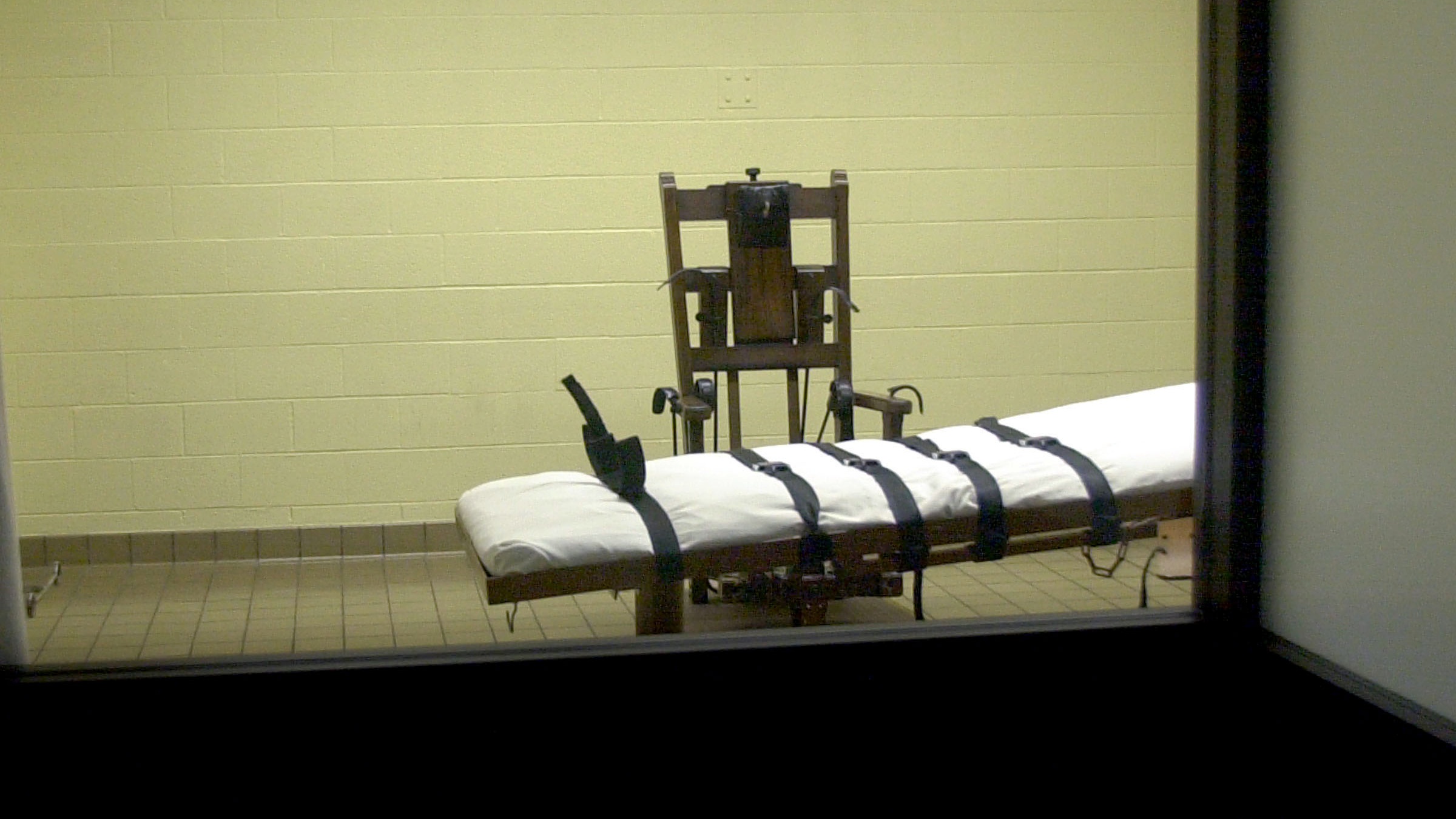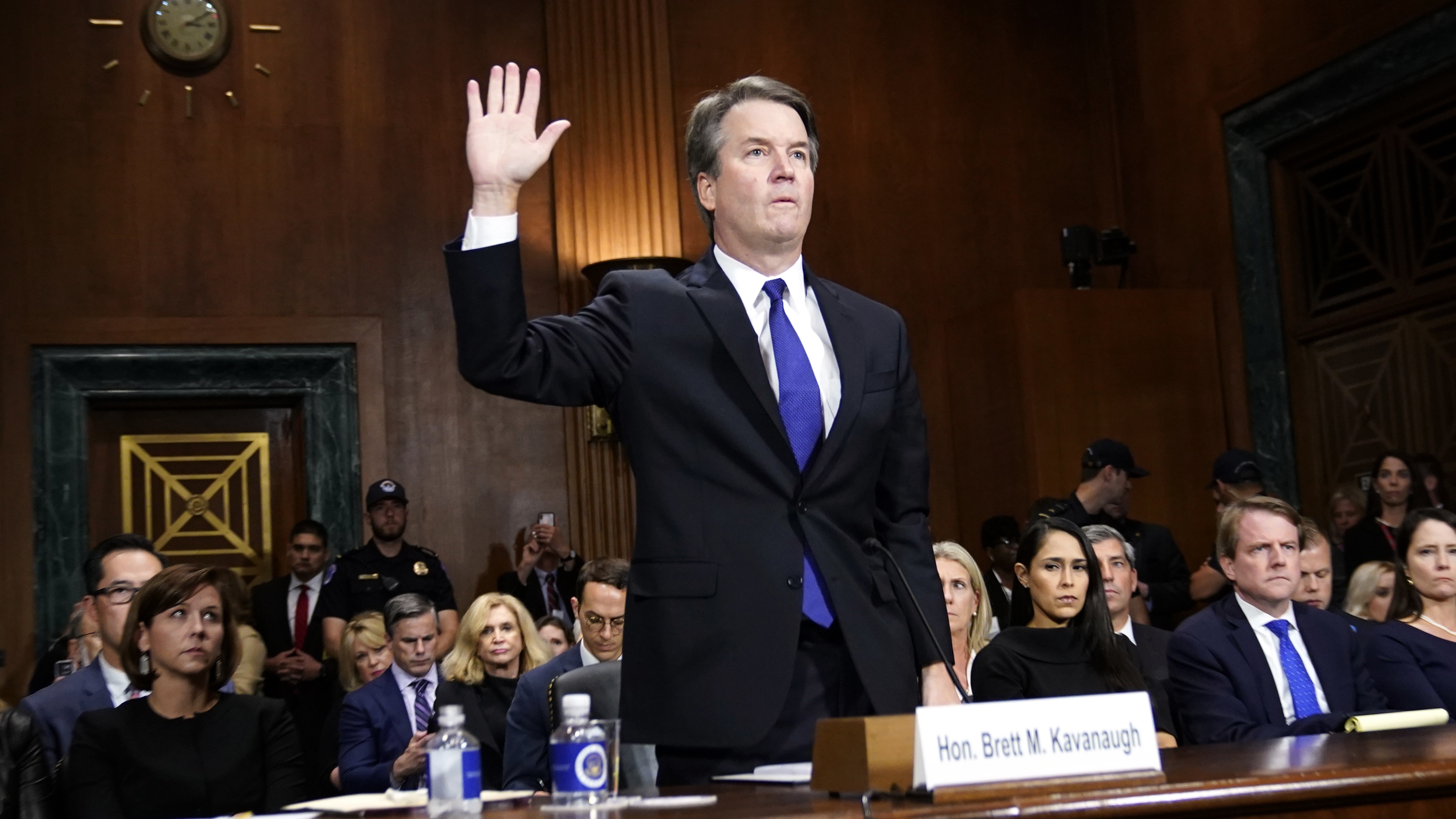Why the government’s most senior lawyer resigned
Sir Jonathan Jones had long expressed doubts about the government’s commitment to upholding the law

A free daily email with the biggest news stories of the day – and the best features from TheWeek.com
You are now subscribed
Your newsletter sign-up was successful
When Sir Jonathan Jones announced his resignation as head of the Government Legal Department yesterday, he gave no reason for his abrupt departure. But there was little doubt about what led to his decision.
The “baby-faced former barrister” had long questioned the legality of the government’s Brexit strategy, The Telegraph reports. Increasingly unhappy, he “had made that clear to his inner circle in recent days”.
In the end, he “quit over Boris Johnson’s proposal to row back on parts of last year’s Brexit deal relating to Northern Ireland”, says the Financial Times.
The Week
Escape your echo chamber. Get the facts behind the news, plus analysis from multiple perspectives.

Sign up for The Week's Free Newsletters
From our morning news briefing to a weekly Good News Newsletter, get the best of The Week delivered directly to your inbox.
From our morning news briefing to a weekly Good News Newsletter, get the best of The Week delivered directly to your inbox.
Hours later, Northern Ireland Secretary Brandon Lewis conceded that Johnson’s plan “does break international law in a very specific and limited way”.
The admission “led to a torrent of criticism”, says The Guardian, “including from the former prime minister Theresa May, who questioned whether Boris Johnson was risking the UK’s international reputation as a trustworthy nation”.
According to the Financial Times, Jones had previously made a private request for independent legal advice to establish whether the government might be “in breach of the ministerial code that obliges ministers to follow the law”.
And in February, he had publicly reiterated the importance of respecting international obligations.
A free daily email with the biggest news stories of the day – and the best features from TheWeek.com
“Fundamentally, international law is the law,” he told the Institute for Government. “It derives from obligations the government has entered into through treaty. The government is subject to the rule of law and will comply with those obligations.”
By then, he had “come close to resigning” once already, says The Telegraph, when the government said it might ignore the Benn Act, which would have forced Johnson to ask Brussels for a Brexit extension if no deal could be agreed.
“One source said he had decided against it after concluding that despite briefings to the media, the government did not in fact intend to break the law,” the paper reports.
This time, he seems to have reached the opposite conclusion.
Holden Frith is The Week’s digital director. He also makes regular appearances on “The Week Unwrapped”, speaking about subjects as diverse as vaccine development and bionic bomb-sniffing locusts. He joined The Week in 2013, spending five years editing the magazine’s website. Before that, he was deputy digital editor at The Sunday Times. He has also been TheTimes.co.uk’s technology editor and the launch editor of Wired magazine’s UK website. Holden has worked in journalism for nearly two decades, having started his professional career while completing an English literature degree at Cambridge University. He followed that with a master’s degree in journalism from Northwestern University in Chicago. A keen photographer, he also writes travel features whenever he gets the chance.
-
 One great cookbook: Joshua McFadden’s ‘Six Seasons of Pasta’
One great cookbook: Joshua McFadden’s ‘Six Seasons of Pasta’the week recommends The pasta you know and love. But ever so much better.
-
 Scientists are worried about amoebas
Scientists are worried about amoebasUnder the radar Small and very mighty
-
 Buddhist monks’ US walk for peace
Buddhist monks’ US walk for peaceUnder the Radar Crowds have turned out on the roads from California to Washington and ‘millions are finding hope in their journey’
-
 Texas’s abortion law: the Republicans get their way, at last
Texas’s abortion law: the Republicans get their way, at lastSpeed Read SB8 authorises private citizens to sue anyone who performs, ‘aids or abets’ an abortion after six weeks of pregnancy
-
 Changing legal gender: what’s new and how does it work?
Changing legal gender: what’s new and how does it work?Speed Read Cost of a gender recognition certificate application is reduced from £140 to £5
-
 America’s bloodiest state votes to ban the death penalty
America’s bloodiest state votes to ban the death penaltySpeed Read Virginia has executed more than 1,300 people in its 400-year history
-
 FBI accused of ‘fake’ background check on Donald Trump Supreme Court nominee
FBI accused of ‘fake’ background check on Donald Trump Supreme Court nomineeSpeed Read Democratic senator calls for ‘proper oversight’ over Brett Kavanaugh investigation into sexual assault claims
-
 Family of Malcolm X claims letter proves FBI and NYPD involved in his murder
Family of Malcolm X claims letter proves FBI and NYPD involved in his murderSpeed Read Daughters of assassinated civil rights leader demand reopening of investigation
-
 Meghan Markle granted nine-month delay in Mail on Sunday privacy case
Meghan Markle granted nine-month delay in Mail on Sunday privacy caseSpeed Read Duchess of Sussex had applied for summary judgement in battle over letters sent to her estranged father
-
 Meghan Markle to pay £67,000 after losing first round of legal battle against Mail
Meghan Markle to pay £67,000 after losing first round of legal battle against MailSpeed Read Duchess of Sussex is suing the newspaper’s publisher for printing parts of private letter to her father
-
 MI6 agents tried to stop judge seeing secret documents in ‘licence to kill’ case
MI6 agents tried to stop judge seeing secret documents in ‘licence to kill’ caseSpeed Read Intelligence agency was forced to apologise for ‘any misunderstanding’, court documents show